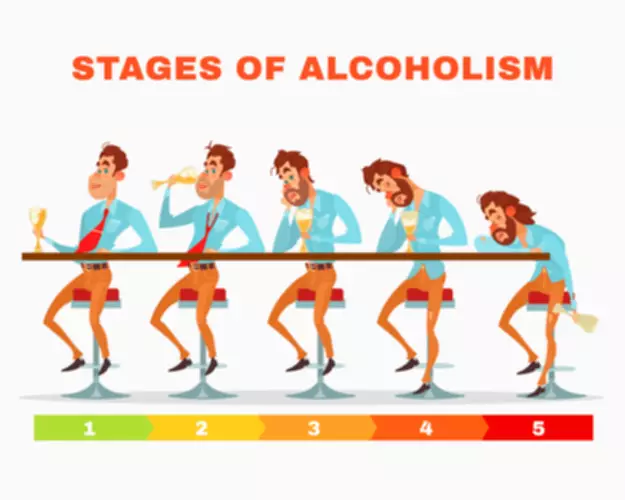
Express your concern, offer support, and encourage them to seek professional help or join a support group like AA (Alcoholics Anonymous). While physical signs like a red face can be suggestive, it is not possible to definitively tell if someone is an alcoholic just by looking at them. Alcohol can cause facial redness, commonly referred to as alcohol flush reaction.

The 3 Stages of Alcoholism
Dr. Chintan is a Board Certified Family Physician with an interest in holistic and preventative care as well as healthcare systems. Credentialed Physician with both American & Canadian Board of Family Medicine. Adjunct Professor in the Department of Family Medicine at the Schulich School of Medicine & Dentistry. Seth brings many years of professional experience working the front lines of addiction in both the government and privatized sectors.
- I’ve spent the last seven years researching and understanding alcoholism, addiction, and how people get sober.
- Over time, it causes heart muscles to droop and stretch, like an old rubber band.
- Excessive alcohol use significantly impacts skin health, often leading to visible dryness, redness, and inflammation.
- And that’ll have big effects on your ability to think, learn, and remember things.
- Outpatient treatment offers less supervision and accountability and allows plenty of opportunity for a relapse.
Signs of Alcoholism & Symptoms of Alcohol Withdrawal
- Your bones get thinner and more fragile, a condition called osteoporosis.
- Alcoholic face is a broad way to describe facial changes from excessive drinking.
- Even a functioning alcoholic can become homeless, penniless and alone if they are addicted long enough.
- These symptoms aren’t just uncomfortable, but can be wildly dangerous without help from trained medical professionals.
- Recurrent swelling may suggest an underlying issue with the kidneys, liver, or heart and should be seen by a doctor if continuing for more than two days in a row.
Younger people may look older than they are due to wrinkles, sagging skin, and aging lines that change the appearance of the face. People with alcoholism can develop erosive gastritis, where the stomach lining wears away. Alcohol not only dehydrates your skin but also your hair and hair follicles.
Your Brain Shrinks

They may still go to work, but they make mistakes, show up late or aren’t as productive as they should be. They often realize that alcohol has become a problem even if they don’t admit it to others. The alcoholic will make promises to only have one glass of wine or two beers. However, they are unable to control their consumption when they start.
- This can lead to nerve-related itching, known as generalized pruritus.
- If you suspect that a loved one is struggling with alcoholism, the best approach is to have a compassionate and non-judgmental conversation with them.
- Drinking rarely causes them to miss work and other obligations (although it does happen occasionally).
- Actively seek new ways to spend your free time that doesn’t involve drinking.
- In some individuals, alcohol abuse may lead to the desire for high-fat meals due to the release of ghrelin, a stomach hormone that regulates appetite.
tell-tale physical traits of a heavy alcohol drinker, according to experts — from brittle hair to skin blotches
- This support could take the form of a halfway house, a support group such as AA, or continuing therapy.
- Drinking has become a socially acceptable behavior in society that sometimes, it can be difficult to determine if a person is suffering from alcohol use disorder.
- If an individual develops alcoholic hepatitis and does not stop drinking, cirrhosis can result.
- They’ll verify your health insurance, help set up travel arrangements, and make sure your transition into treatment is smooth and hassle-free.
I found myself in disbelief that his life took some of the turns it did while at the same time rooting for him. His dysfunction has the weird quality of being both uniquely his own and universal. This gem of a book by Clare Pooley is a nice departure from the intensely introspective books I just mentioned. And that’s not to say that it isn’t introspective (of course it is!) but it’s also funny and more lighthearted. Until I read do alcoholics drink every day this book, I felt a combination of broken (or at the very least, defective) and hopeless. This book by Caroline Knapp was the first recovery memoir I ever read.

Being at a later stage can make recovery more challenging, but recovery is possible at any stage of alcoholism. There are no quick fixes to addiction, and alcoholism is no different. The safest course of action is to seek treatment in a professional environment that is catered to the individual needs, preferably with holistic treatment.